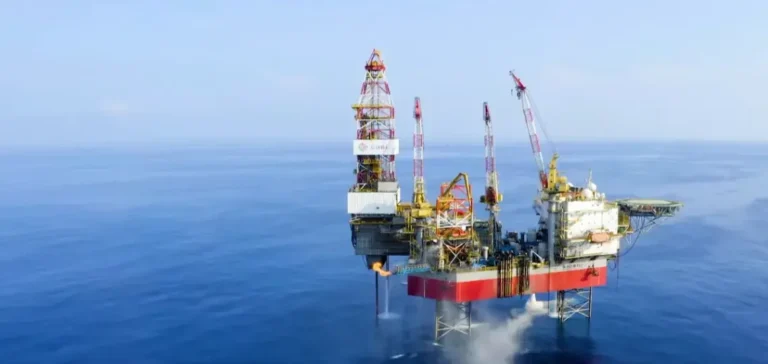Taiwan has accused China of illegally deploying oil and gas exploration platforms in its territorial waters, stating that these installations undermine international order and threaten regional stability. According to Taiwanese authorities, Beijing has set up at least twelve fixed structures in Taiwan’s exclusive economic zone, near the Pratas Islands, claimed by both sides.
The installations are attributed to the China National Offshore Oil Corporation (Cnooc), a Chinese state-owned enterprise active in offshore oil exploration. The office of Taiwanese President Lai Ching-te declared that these activities contravene international legal standards and called on China to halt them immediately. The Taiwanese government stressed that such actions increase geopolitical risks for the entire region.
Twelve structures identified by an American foundation
The Taiwanese accusations are based on a report published by the Jamestown Foundation, a United States-based think tank. The report lists twelve oil drilling structures operated by Cnooc in the waters off the Pratas Islands, located in the northern South China Sea. It specifies that these platforms are allegedly used for exploration purposes, but also as a strategic tool in the Sino-Taiwanese rivalry.
The document states that these installations are part of a multidimensional strategy aimed at asserting Chinese sovereignty in the region. This approach also includes legal, economic and informational measures intended to weaken Taiwan’s international standing without resorting directly to armed conflict.
An energy dispute under geopolitical tension
The South China Sea is a highly strategic area due to its hydrocarbon resources and its importance for international shipping routes. Taiwan currently controls the Pratas Islands, but they are also claimed by China, which regards the island as a separatist province that must be reintegrated into its territory.
For several years, the region has been experiencing increasing militarisation, driven by the construction of civilian and military infrastructures on reefs and artificial islands. In this context, the deployment of oil platforms represents both an energy and political issue for the actors involved.
Calls for de-escalation remain unanswered
No official response has been issued by the Chinese authorities regarding the Taiwanese accusations. However, Beijing has consistently rejected past criticism of its maritime activities, insisting they fall within its national sovereignty. Risks for energy operators and regional supply chains remain uncertain, as tensions persist around this disputed maritime area.






















